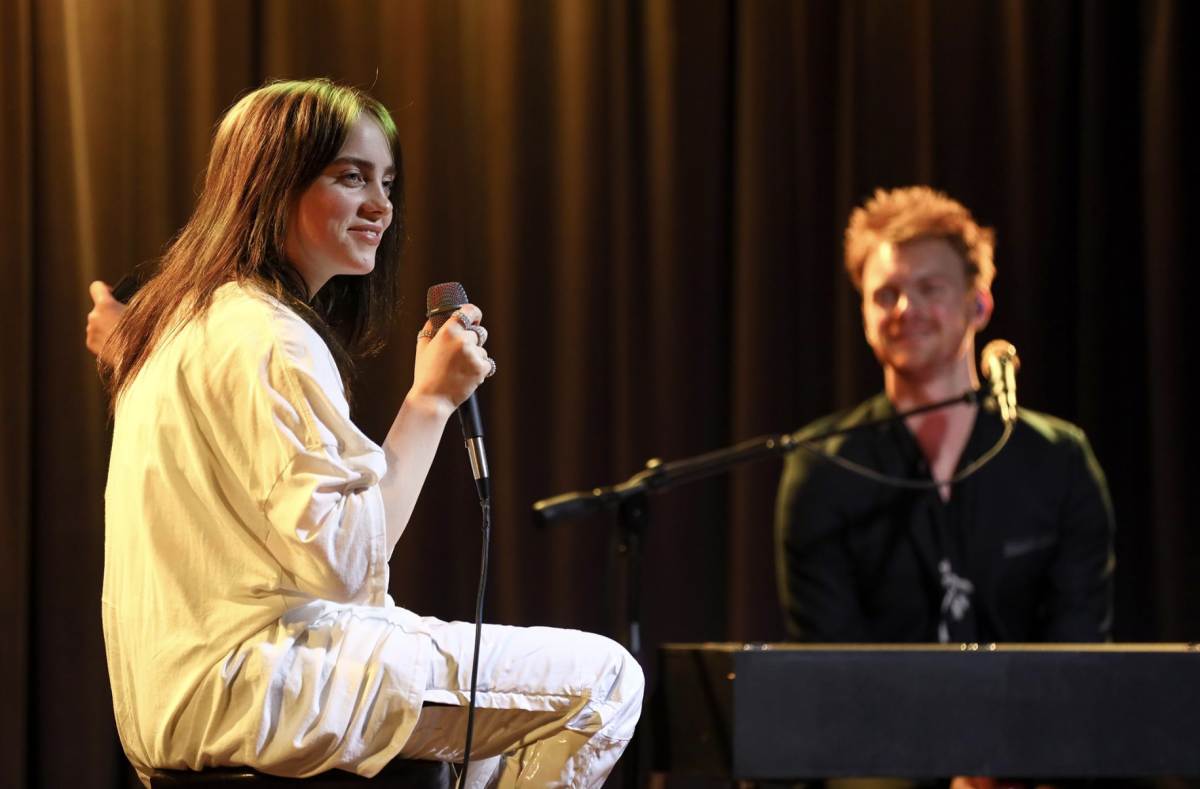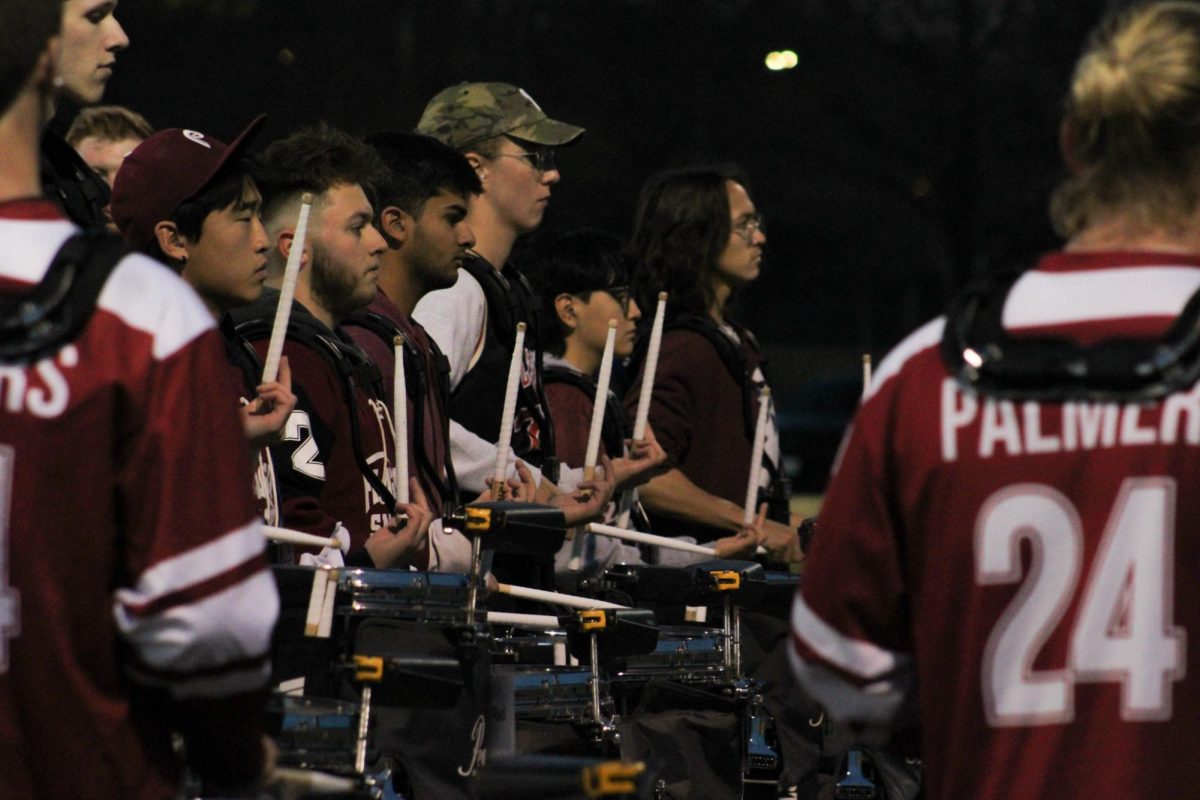This summer, I walked by Boston Calling by happenstance. I was in the city for no particular reason and didn’t know the festival was that day until I saw the advertisements glaring at me from across the subway tracks. Curious, my friends and I followed the sound of bass echoing off the skyscrapers until we reached Government Center.
We rounded the corner and had basically made it backstage. Mere yards separated us from stairs leading to the main stage, where four lumberjack-looking musicians waited to go on next. Through the fence we could see them talking, tuning their instruments and smoking cigarettes.
In Boston, the music festival mystique is shattered. The city suffocates the music by forcing what should be a huge setting into a city block. Echoes bouncing off the surrounding buildings made the music muffled and oppressive. Security guards were stationed lazily along the festival’s border, feeling more like baby sitters than any sort of authoritative figure. But as I looked around at all the flower-clad teenagers, they seemed to be loving every second of it.
That is when I decided Boston Calling is the training bra of music festivals. Nothing about it is appealing or sexy, but to those who have never had one before, it is the best thing to ever happen to them. Music festivals have been idealized and commercialized so much that simply being at one can make or break someone’s summer. So to meet the demand, music festivals have to increase their supply.
This summer, Lollapalooza sold out in record time. Every three-day pass was purchased in under an hour and every single-day pass in less than two. Coachella attracted more than 80,000 attendees daily over the course of the two-weekend event and grossed $67.2 million last year. With that kind of money, it’s no wonder music festivals are being promoted more than ever. Even stores like American Eagle and PacSun advertise their “festival fashion,” like fringes and high-waisted shorts are part of some unspoken dress code.
Coinciding with their surge in popularity, music festivals have also experienced a drastic change of face. Today, beautiful people advertise festivals wearing beautiful clothing twirling in beautiful sun-soaked fields. This is nothing like the drug-induced hippy mud-fests of generations past. At the first Woodstock Festival in 1969, food had run out after the first day. It lacked proper sanitation, and festivalgoers were forced to relieve themselves out in the open for the duration of the festival. Yet Woodstock is still regarded as one of the most influential events of that generation.
This brings up an important point that music festivals seem to have forgotten. Festivals aren’t about choosing lineups that will rake in the most revenue or following current trends. They are about celebrating a culture through music. Back in the era of Woodstock, there was a message behind the music and a reason almost half a million people traveled Max Yasgur’s dairy farm in Bethel, New York. In 1969, the counterculture movement was in full swing and Woodstock was simply a tool of expression.
Not all music festivals have dwindled to the level of Boston Calling, but its existence and popularity speak to the undesirable direction that American music festivals are going in. Festivals like the Newport Jazz and Folk festivals, a Rhode Island tradition since 1954, have stayed true to their genres since their inception, and continue to draw consistent, devoted crowds each year.
Boston Calling began two years ago when founder Mike Snow recognized the market of college students simply dying to go to a music festival, so he brought it to them. There was no single theme to Boston Calling, and no message being celebrated other than the fact that college girls will pay hundreds of dollars to say they went to a music festival.
With any guts and the smallest twinge of desire, we could have jumped the fence around Government Center and disappeared into the sea of bodies within. All that separated us from the music was a chain-link fence fortified with port-o-potties and fried dough stands, but it wasn’t even worth it.
Everything Boston Calling has to offer can be experienced from the comfort of the Greenway for free. So we sat in the North End, sipping coffee and listening to the distant beats completely content with our free lawn seats.
Sarah Robertson can be reached [email protected].



















Robert • Jul 1, 2016 at 1:55 pm
And two years later Boston Calling is one of the last independent music festivals in the country and has gained enough popularity from people of all ages to expand to the Harvard University Athletic fields for an even larger event in 2017. “The sad decline of the American Music Festival” is very much so the opposite right here in Boston 🙂